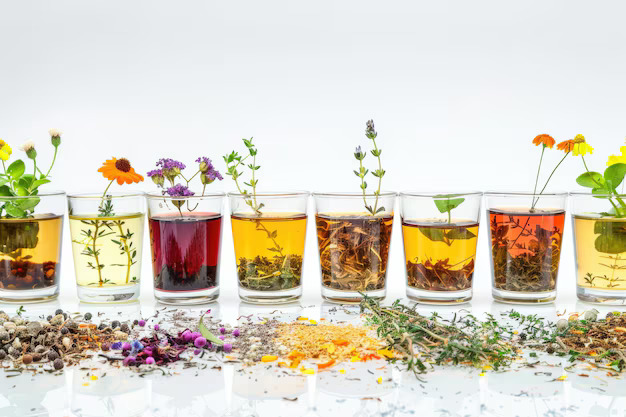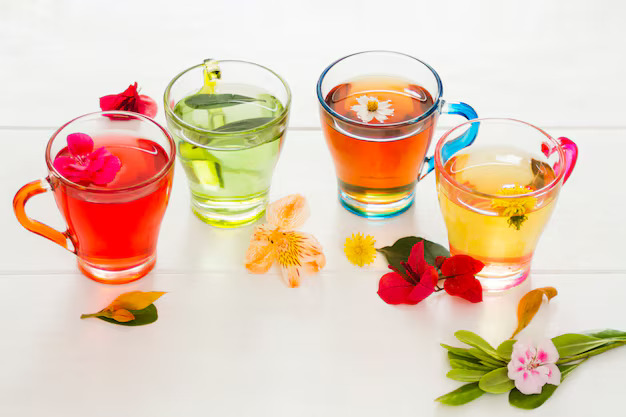8 Herbal Drinks For Irregular Periods
Irregular periods are a common concern among women, often signaling underlying hormonal imbalances, lifestyle stress, poor nutrition, or medical conditions like PCOS (Polycystic Ovary Syndrome).
While conventional medicine offers various treatments, many women are turning to natural remedies to regulate their menstrual cycles. Among these remedies, herbal drinks stand out as both effective and holistic options.
This blog post from Sport and Medical Sciences explores eight potent herbal drinks that can help regulate irregular periods and support overall reproductive health.

Understanding Irregular Periods
A menstrual cycle typically lasts 28 days, but anything from 21 to 35 days is considered normal. Irregular periods can mean cycles that are shorter or longer than this range, missed periods, or excessive bleeding. Causes can include:
- Hormonal imbalances (especially estrogen and progesterone)
- Polycystic Ovary Syndrome (PCOS)
- Thyroid disorders
- Stress and anxiety
- Excessive physical activity
- Poor diet and nutritional deficiencies
Before trying any herbal remedy, it’s important to rule out serious underlying conditions by consulting a healthcare professional. Once medical causes have been addressed, herbal drinks can be an excellent complement to a balanced lifestyle.
1. Ginger Tea
Ginger is a warming herb known for its anti-inflammatory and antispasmodic properties. It stimulates menstrual flow and helps reduce painful cramps.
Benefits:
- Encourages healthy blood flow
- Balances hormone levels
- Reduces inflammation
How to Make:
- Boil 1-2 inches of fresh ginger root in 2 cups of water for 10 minutes.
- Strain and add a teaspoon of honey for taste.
Best Time to Drink:
- Once daily, preferably in the morning.
2. Cinnamon Tea
Cinnamon is widely used in Traditional Chinese Medicine and Ayurveda to warm the body and stimulate blood circulation, making it ideal for women with delayed or scanty periods.
Benefits:
- Improves insulin sensitivity (especially useful for women with PCOS)
- Promotes regular menstruation
- Relieves menstrual cramps
How to Make:
- Add 1 teaspoon of cinnamon powder to a cup of hot water.
- Let it steep for 5-10 minutes and add a bit of honey if desired.
Best Time to Drink:
- Once daily during the second half of the menstrual cycle.
3. Fennel Seed Water
Fennel seeds (saunf) are rich in phytoestrogens and have antispasmodic properties. They can regulate the menstrual cycle and alleviate PMS symptoms.
Benefits:
- Regulates estrogen levels
- Eases menstrual cramps
- Supports digestion
How to Make:
- Soak 1 tablespoon of fennel seeds in a glass of water overnight.
- Strain and drink on an empty stomach the next morning.
Best Time to Drink:
- Daily for a few weeks to see results.
4. Parsley Tea
Parsley is a traditional emmenagogue (a substance that stimulates menstrual flow). It contains apiol and myristicin, compounds that help in uterine stimulation.
Benefits:
- Stimulates menstruation
- Cleanses the uterus
- Rich in vitamin C and iron
How to Make:
- Add a handful of fresh parsley to a cup of boiling water.
- Let it steep for 10 minutes, strain, and drink.
Best Time to Drink:
- Twice daily until menstruation begins.
5. Turmeric Milk
Turmeric is a golden spice with powerful anti-inflammatory and hormone-balancing properties. It’s often used in Ayurvedic medicine to support reproductive health.
Benefits:
- Balances estrogen and progesterone levels
- Boosts liver detoxification (which is crucial for hormone metabolism)
- Relieves menstrual pain
How to Make:
- Mix 1/2 teaspoon of turmeric powder in a cup of warm milk.
- Add a pinch of black pepper to enhance absorption.
Best Time to Drink:
- Nightly, a week before your expected period.
6. Chamomile Tea
Chamomile is known for its calming and antispasmodic effects. It helps to ease menstrual cramps and reduce anxiety, which can interfere with hormone regulation.
Benefits:
- Reduces PMS-related anxiety and mood swings
- Promotes restful sleep
- Eases uterine cramps
How to Make:
- Steep 1 chamomile tea bag or 2 teaspoons of dried chamomile flowers in hot water for 10 minutes.
- Strain and enjoy.
Best Time to Drink:
- Nightly during the luteal phase (after ovulation to period).
7. Spearmint Tea
Spearmint is particularly effective for women with PCOS, as it reduces androgen (male hormone) levels that interfere with ovulation and regular menstruation.
Benefits:
- Lowers testosterone levels
- Promotes regular ovulation
- Improves hirsutism (excessive hair growth)
How to Make:
- Boil a handful of fresh spearmint leaves or 1 teaspoon dried spearmint in water.
- Steep for 5-7 minutes, strain, and drink.
Best Time to Drink:
- Twice daily for a month.
8. Aloe Vera Juice with Honey
Aloe vera is a powerhouse of nutrients and has long been used to balance hormones and support reproductive health.
Benefits:
- Stimulates estrogen production
- Detoxifies the body
- Regulates menstrual cycles
How to Make:
- Mix 1 tablespoon of fresh aloe vera gel with 1 teaspoon of honey.
- Consume on an empty stomach in the morning.
Best Time to Drink:
- Daily for 3 weeks, then take a 1-week break.
Lifestyle Tips to Support Herbal Remedies
While herbal drinks can provide significant benefits, combining them with healthy lifestyle habits will yield the best results:
- Maintain a Balanced Diet:
Include whole grains, healthy fats, fruits, and vegetables. Avoid processed foods and excess sugar.
- Exercise Regularly:
Moderate physical activity such as yoga, walking, or swimming helps balance hormones.
- Manage Stress:
Chronic stress can disrupt the hypothalamus, the part of the brain that regulates hormones. Practice meditation, deep breathing, or journaling.
- Get Enough Sleep:
Aim for 7-9 hours of quality sleep to support hormonal function.
- Track Your Cycle:
Use apps or journals to monitor your cycle and symptoms. This can help identify patterns and effectiveness of remedies.

When to See a Doctor
While herbal remedies are generally safe, it’s important to consult a healthcare provider if:
- Your periods have been absent for 3 or more months (amenorrhea)
- You experience excessive bleeding or severe pain
- You’re trying to conceive without success for over a year
- You suspect an underlying condition like PCOS, endometriosis, or thyroid issues
Final Thoughts
Herbal drinks offer a natural, gentle way to restore menstrual balance and support reproductive health. From ginger tea to aloe vera juice, these remedies have been used across cultures and generations.
By incorporating these herbal infusions into your daily routine and pairing them with healthy lifestyle choices, you may find a significant improvement in your menstrual cycle regularity.
As with any natural approach, consistency is key. Monitor your body’s response and be patient—natural remedies often take time to show their full effect. Always listen to your body, and when in doubt, seek guidance from a qualified healthcare provider.
References
- National Center for Complementary and Integrative Health (NCCIH)
https://nccih.nih.gov - Journal of Obstetrics and Gynaecology Research
https://onlinelibrary.wiley.com/journal/14470756 - Mayo Clinic – Menstrual Cycle Disorders
https://www.mayoclinic.org - WebMD – Herbal Remedies for Menstrual Health
https://www.webmd.com - PubMed Central (PMC) – Herbal Interventions and Hormonal Regulation
https://www.ncbi.nlm.nih.gov/pmc/